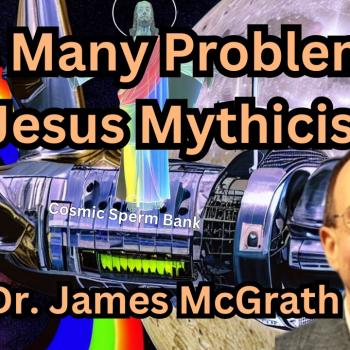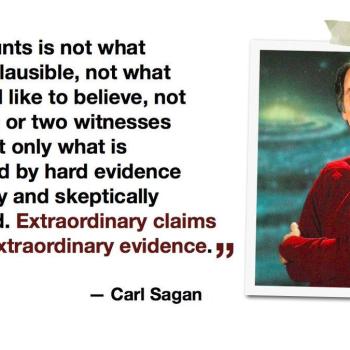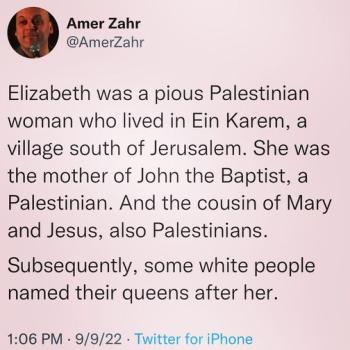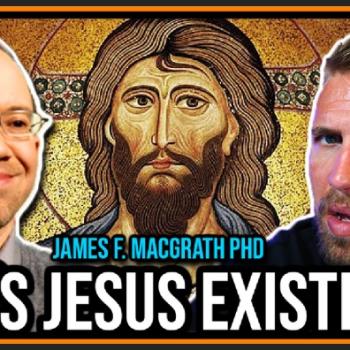Scholarship involves the building of consensus and the challenging of thereof, and so it is easy to find oneself confused about when a view is merely a minority or even a fringe scholarly viewpoint, and when it has crossed the line into pseudoscholarship. And so I thought this comment by Paul Regnier deserved to be highlighted in a post:
What defines a theory as pseudoscholarship is not that it goes against the consensus. Pseudoscholarship tends to
- Denigrate entire scholarly fields
- Largely ignore established academic channels
- Largely ignore or parody academic conventions
- Reflect a narrow range of ideological perspectives
- Reject entire meta-narratives, not points within them
- Make sensationalist claims
- Appeal to dubious methodological privilege BUT
- In reality employ flawed methods
- Rely on supernatural over natural explanations
- Be developed and supported disproportionately by non-specialists.
I make that 10 out of 10 for mythicism.
Does this get at the key characteristics? Would you add anything to the list or subtract anything from it?












